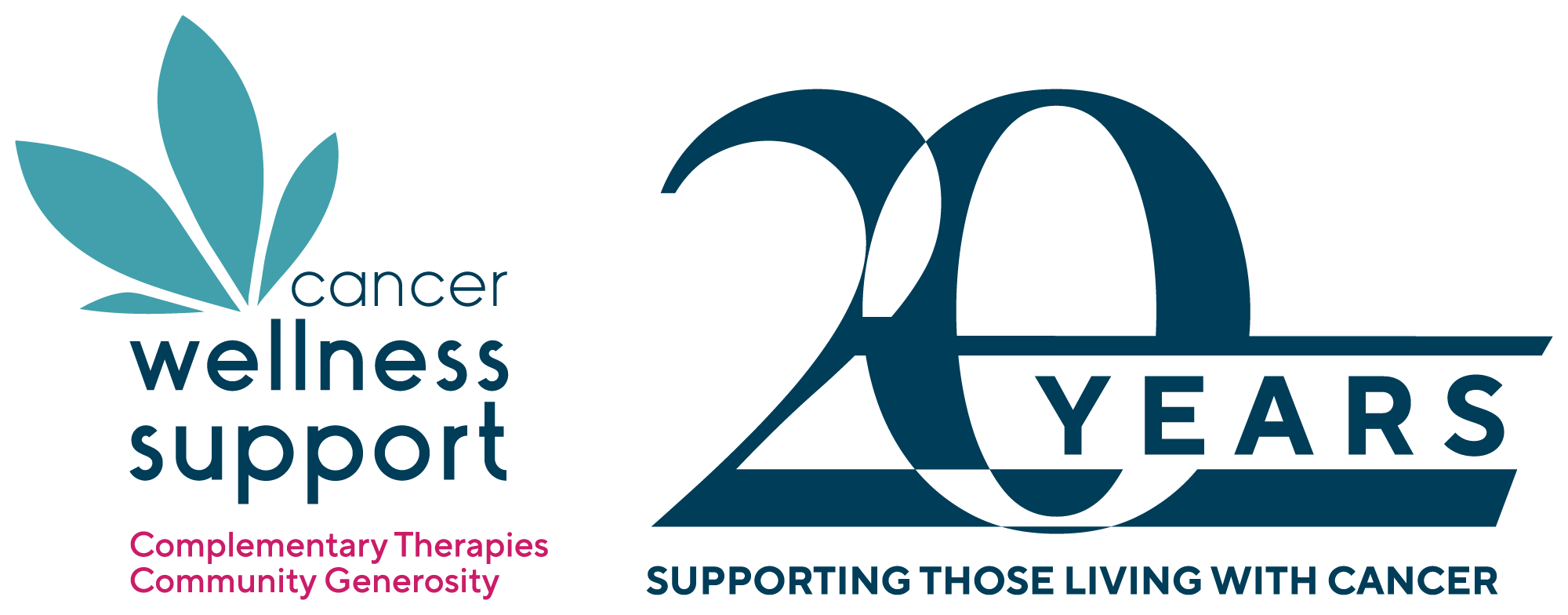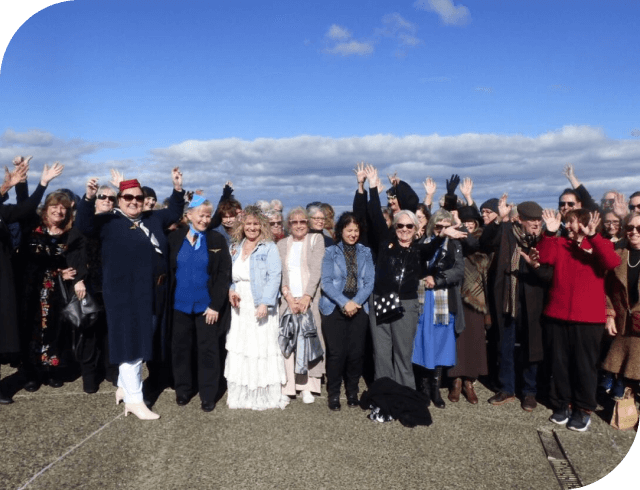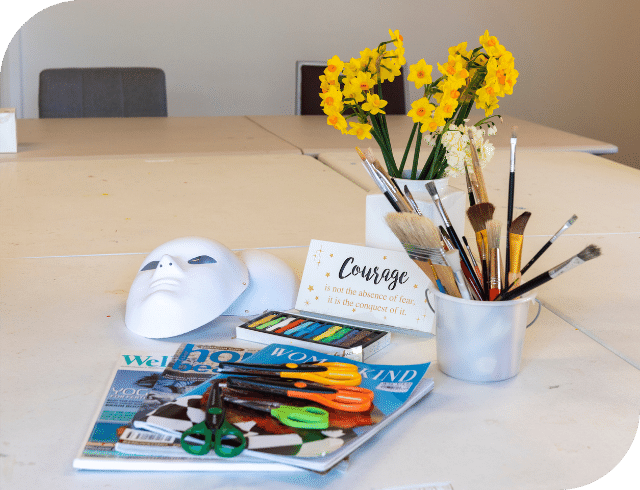
Wellness And Therapy Guides
Expressive Arts Therapy
What is Expressive Arts Therapy?
Expressive Arts Therapy offers a nurturing space to explore your emotions and experiences related to your diagnosis and treatment, and is the therapeutic use of art within a professional relationship employed across health and medical fields.
Many wonder, “How can I express myself through art if I’m not artistic?” Regardless of your skill level, this therapy welcomes everyone to engage in creative self-expression.
Using various mediums like painting, drawing, creative writing, music and dance, Expressive Arts Therapy taps into the healing power of creativity.
Central to this approach is the belief that engaging in creative processes is a fundamental aspect of human nature that nurtures mental and emotional wellbeing.
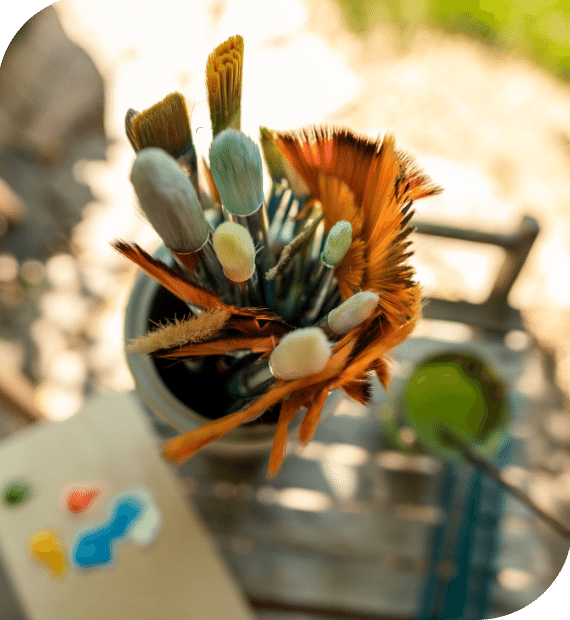
Expressive Arts Therapy offers a nurturing space to explore your emotions and experiences related to your diagnosis and treatment.
Many wonder, “How can I express myself through art if I’m not artistic?” Regardless of your skill level, this therapy welcomes everyone to engage in creative self-expression.
Using various mediums like painting, drawing, creative writing, music and dance, Expressive Arts Therapy taps into the healing power of creativity.
Central to this approach is the belief that engaging in creative processes is a fundamental aspect of human nature that nurtures mental and emotional wellbeing.
Expressive Arts Therapy is the therapeutic use of art within a professional relationship that is used across health and medical fields.
Benefits for People Living With Cancer
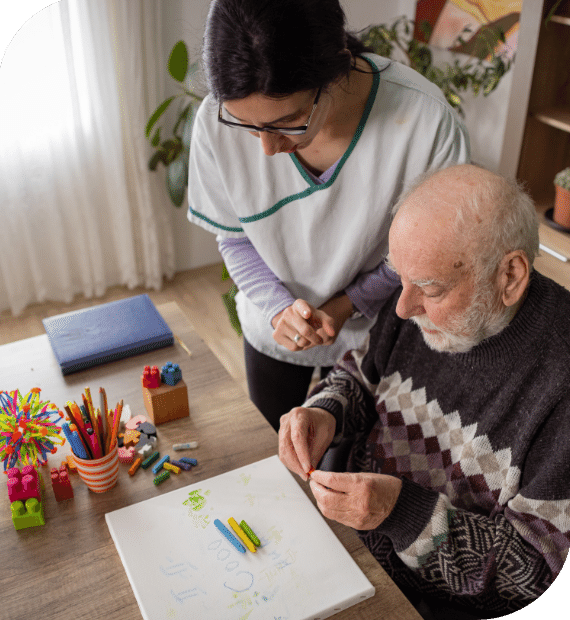
Emerging evidence suggests that Expressive Arts Therapy may help to express emotions and alleviate symptoms of anxiety, stress, and anger in people living with cancer, and is a valuable component of comprehensive cancer care.
Additionally, preliminary findings indicate that participation in Expressive Arts Therapy could improve depression and alleviate fatigue among people undergoing chemotherapy.
For those who find talk therapy challenging, Expressive Arts Therapy can provide an alternative avenue for communication and emotional processing.
Benefits for People Living With Cancer
Emerging evidence suggests that Expressive Arts Therapy may help to express emotions and alleviate symptoms of anxiety, stress, and anger in people living with cancer, and is a valuable component of comprehensive cancer care.
Additionally, preliminary findings indicate that participation in Expressive Arts Therapy could improve depression and alleviate fatigue among people undergoing chemotherapy.
For those who find talk therapy challenging, Expressive Arts Therapy can provide an alternative avenue for communication and emotional processing.
Benefits for Carers
Expressive Arts Therapy can provide invaluable support for carers to gain new perspectives, process difficult emotions, and discover inner strength and coping strategies.
By using therapeutic creative mediums, carers can alleviate stress, anxiety, and burnout, and foster mental and emotional wellbeing.
For those who find talk therapy challenging, Expressive Arts Therapy can provide an alternative avenue for communication and emotional processing.
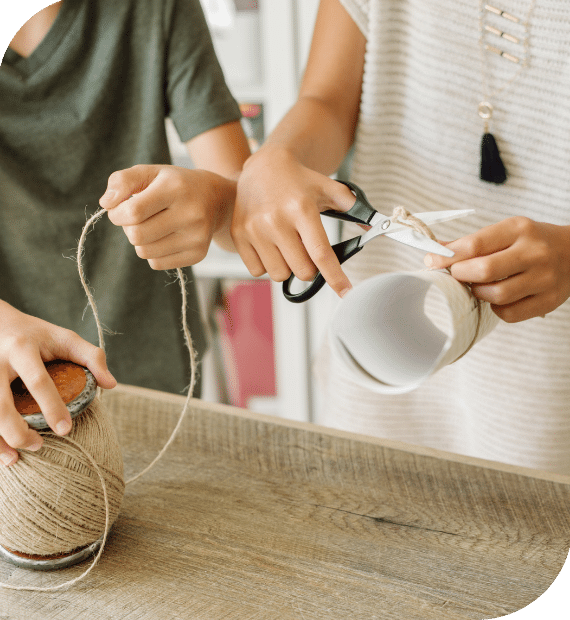
Expressive Arts Therapy can provide invaluable support for carers to gain new perspectives, process difficult emotions, and discover inner strength and coping strategies.
By using therapeutic creative mediums, carers can alleviate stress, anxiety, and burnout, and foster mental and emotional wellbeing.
For those who find talk therapy challenging, Expressive Arts Therapy can provide an alternative avenue for communication and emotional processing.
What to Expect from Your Session

In an Expressive Arts Therapy session, you’re encouraged to express yourself freely, without judgement, allowing your creativity to flow naturally. No artistic skill is required, as various materials are provided for your artwork.
Expressing yourself through art can reveal subconscious thoughts and emotions, leading to insights and shifts in perception. The focus is on the creative process rather than the end product.
Your therapist won’t interpret your artwork, but will ask questions about its meaning to you and your feelings during its creation.
Sessions can be one-on-one or in small, confidential groups, fostering safety and intimacy for exploration and connection.
What to Expect from Your Session
In an Expressive Arts Therapy session, you’re encouraged to express yourself freely, without judgement, allowing your creativity to flow naturally. No artistic skill is required, as various materials are provided for your artwork.
Expressing yourself through art can reveal subconscious thoughts and emotions, leading to insights and shifts in perception. The focus is on the creative process rather than the end product.
Your therapist won’t interpret your artwork, but will ask questions about its meaning to you and your feelings during its creation.
Sessions can be one-on-one or in small, confidential groups, fostering safety and intimacy for exploration and connection.
References
- Arts Therapy Fact Sheet | sandrabuchanan.com.au
- An Introduction to Art Therapy | arttherapycourses.com.au
- Expressive Arts Therapy | SoulAdvisor
- The Effect of Creative Psychological Interventions on Psychological Outcomes for Adult Cancer Patients | Wiley Online Library
- Art Therapy Improved Depression and Influenced Fatigue Levels in Cancer Patients on Chemotherapy | Wiley Online Library
- Perceived Impact of Participation in a One-Time Expressive Arts Workshop | Military Medicine | Oxford Academic
- Creative Arts Interventions to Address Depression in Older Adults | Frontiers in Psychology
